In Macedonia, Strengthening IXP.mk’s Peering Infrastructure

The Internet Society has been supporting the development of the Internet in Macedonia by collaborating with the Faculty of Computer Science and Engineering (FCSE) of the Saints Cyril and Methodius University in Macedonia on its IXP.mk project. IXPs play a critical role in bringing faster and more affordable Internet, and the Macedonian IXP (IXP.mk) had been established in June 2018 with technical support from a number of stakeholders.
Switch and MUX to Strengthen Infrastructure
As traffic grew, IXP.mk needed to increase its peering capacity with improved switching capabilities and space for data racks that would allow it to attract new participants to the exchange. In 2020, the Internet Society provided IXP.mk with a switch and two Fiber Optic Multiplexers (Fiber Mux) that enabled an additional peering location to be established in the Telesmart Telekom data center, thereby making it easier for other major networks and Content Distribution Networks to peer with each other. The Fiber Muxes support the transmission of multiple data channels over a single fiber that has been donated by an existing member of IXP.mk.
Critical Service Provider
With a strong peering infrastructure, IXP.mk is now a critical service provider to Continue reading
Internet Society Joins Leading Internet Advocates to Call on ISPs to Commit to Basic User Privacy Protections

By Electronic Frontier Foundation, Mozilla, and The Internet Society
As people learn more about how companies like Google and Facebook track them online, they are taking steps to protect themselves. But there is one relatively unknown way that companies and bad actors can collect troves of data.
Internet Service Providers (ISPs) like Comcast, Verizon, and AT&T are your gateway to the Internet. These companies have complete, unfettered, and unregulated access to a constant stream of your browsing history that can build a profile that they can sell or otherwise use without your consent.
Last year, Comcast committed to a broad range of DNS privacy standards. Companies like Verizon, AT&T, and T-Mobile, which have a major market share of mobile broadband customers in the U.S., haven’t committed to the same basic protections, such as not tracking website traffic, deleting DNS logs, or refusing to sell users’ information. What’s more, these companies have a history of abusing customer data. AT&T, Sprint, and T-Mobile, sold customer location data to bounty hunters, and Verizon injected trackers bypassing user control.
Every single ISP should have a responsibility to protect the privacy of its users – and as mobile internet access continues Continue reading
Announcing the Final Candidate Slates for the 2021 Board of Trustees Elections

On behalf of the 2020-2021 Nominations Committee, I am pleased to announce the final slates of candidates for the 2021 Internet Society Board of Trustees elections.
Chapters Election
As announced to this community on March 1, we received the required number of signatures in support of Glenn McKnight’s petition to stand as a candidate in the Chapters election. No other petitions were filed for the Chapters election. Therefore, the final slate for the Chapters Election is as follows:
- Leiska Evanson
- Luis Martinez
- Glenn Carl McKnight
- Rao Naveed Bin Rais
- Muhammad Shabbir
- Niels ten Oever
Chapter voters will elect one trustee in the 2021 election.
Separately, the Board, acting pursuant to its authority under Article II, Section 1(d), of the Internet Society By-Laws, has announced its intention to offer the runner-up in the Chapters Election a one-year appointment as trustee. This will restore the board to its usual complement of 12 voting members comprised of equal numbers from all three communities: Chapters, Organizational Members and the IETF. The number of voting members fell to 11 when Olga Cavalli resigned with one year remaining in her term.
Organizational Members Election
There were no successful petitions in the Organizational Members election, so Continue reading
Not the Encryption Apocalypse…Yet

“This destroys the RSA cryptosystem.”
That is the last sentence in the abstract of a new, preliminary, dense mathematical paper published by renowned mathematician Claus Peter Schnorr. If this turns out to be true, it will mean bad news for anybody who relies on the underpinnings of encryption – which is everyone!
The paper, posted as a pre-print, meaning it is a draft paper that must undergo academic peer review, claims it has found an algorithm that significantly speeds up a particular kind of mathematical problem called factorization. Factorization is the process of finding two numbers that, when multiplied together, provide the given number. For example, calculating 23 x 29 is easy. (Try it yourself.) But factorizing 437 – finding the two numbers that multiply together to make 437 – will take anybody a bit of time. (It’s 19 x 23 by the way.)
Schnorr claims that he has found a way to significantly speed up the calculation needed to perform factorization – a claim that is currently widely disputed. Supposedly, his method will factor a number with roughly 260 digits about ten trillion times faster than previous methods.
Does Math Matter?
Factorization is the mathematical puzzle Continue reading
The Week in Internet News: Lawmakers Point to ‘Extremist’ Content on YouTube
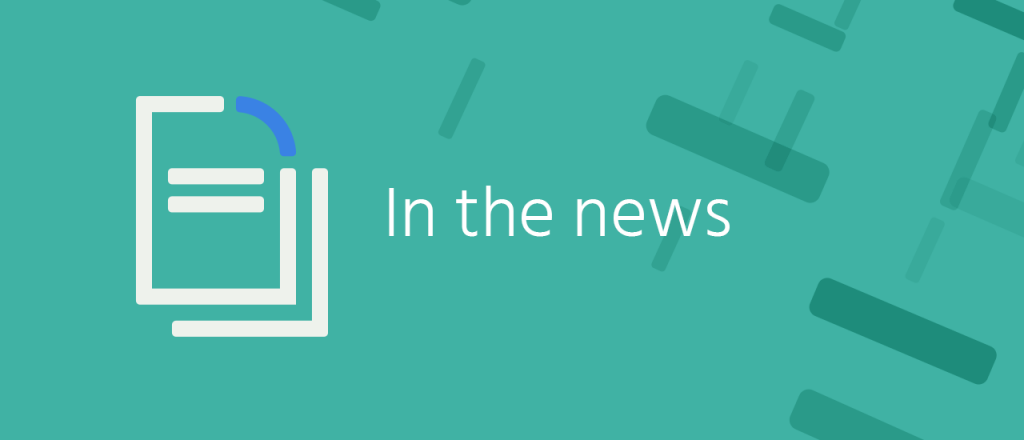
Extreme video: A group of Democratic lawmakers in the U.S. has demanded that YouTube explain its policies related to dealing with extremist content, Yahoo News reports. “Incendiary content that indoctrinates, radicalizes, and mobilizes extremists continues to flourish” on YouTube, the lawmakers wrote.
Blaming encryption: Meanwhile, a new government report on possible extremist attacks on the U.S. Capitol says information on future plans are becoming harder to find because militia groups have shifted to encryption tools, Axios reports. U.S. law enforcement authorities appear to be trying to resurrect their calls for encryption backdoors even as extremist groups post information on public websites like YouTube.
Blaming the website: The U.S. isn’t the only government looking to hold websites more responsible for user-generated content. India’s information technology ministry has finalized a set of rules intended to make online service providers more accountable for their users’ bad behavior, Brookings.edu notes. The Brookings blog post suggests that this effort, mirrored by a similar debate in the U.S., will be a grave threat to free speech and privacy rights.
Clamping down: Meanwhile basic rights in 10 African countries are threatened by a trend toward digital authoritarianism, according to a Continue reading
Member News: Celebrating a Safer Internet
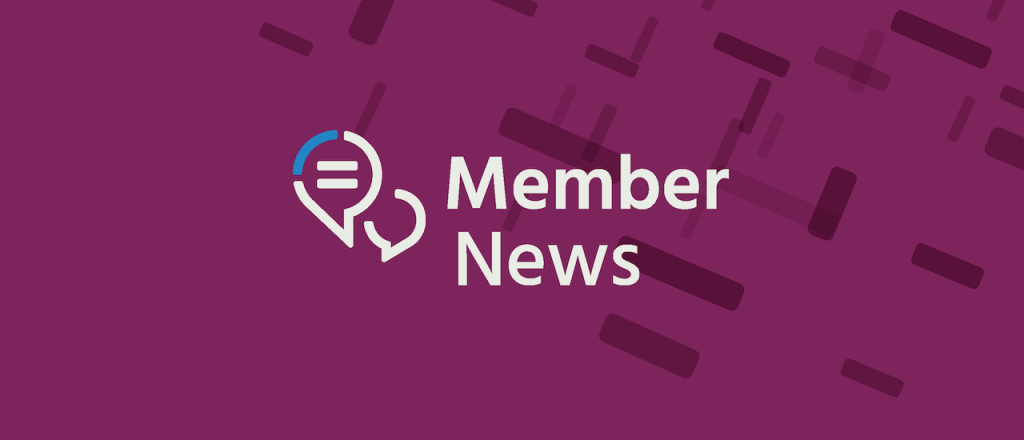
Safe learning: The Nigeria Chapter of the Internet Society celebrated Safer Internet Day with workshops about online safety at schools across the country. Chapter representatives talked to students about several topics, including fake news, online scams, phishing, and clickbait. The two-day workshops included in-person events that complied with COVID-19 social distancing rules, and an online discussion.
Internet to the village: The Kyrgyzstan Chapter has been working to bring Internet access to the village of Zardaly, in a remote and mountainous region of the southwest region of the country. The project has begun with a detailed study of the area, after which radio translators will be ordered and installed. The chapter has also posted an update about its Ilimbox project, an Internet-in-a-box device that, contains basic educational materials available without an Internet connection. The device has now been installed in 20 schools.
No registration required: The Hong Kong Chapter is among a coalition of groups opposing a proposal from the Chinese government that would require users of smartphones to register using their real names. Real-time registration won’t be effective in fighting crime and could hinder scientific research, the chapter said. “The real-name system cannot prevent crimes committed by using overseas calls Continue reading
MANRS Fellowship 2021 Now Open

The MANRS (Mutually Agreed Norms for Routing Security) Fellowship Program 2021 is now accepting applications. If you are an emerging leader eager to improve the well-being of the Internet’s global routing system, apply now.
The program gives highly motivated individuals the chance to work alongside MANRS Ambassadors – industry leaders participating in the associated Ambassador Program that invited applications last month (details here).
Together, they will train diverse communities on good routing practices, analyze routing incidents, research into ways to secure routing, and survey the global policy landscape.
You can read about the 13 Fellows in last year’s inaugural program, which proved highly popular. The Internet Society supports this program as part of its work to reduce common routing threats and establish norms for network operations.
You can apply for a MANRS Fellowship in three different areas: training, research, and policy. Each Fellow will receive a stipend of $750 a month. The program will start in mid-April and run for up to eight months. You can apply for more than one category but will only be selected for one of them.
Online Training
Responsible for: Conducting MANRS online tutorial and virtual hands-on workshops, helping improve existing training and workshop Continue reading
New Year, New Name: Insights Platform Is Now Internet Society Pulse

In order to align better with the Internet Society’s brand strategy, and to further differentiate our platform from other products with similar names, we have decided to rename our measurement platform.
As of 1 March, 2021, Insights will be known as Internet Society Pulse.
The new URL is: https://pulse.internetsociety.org/
A redirect will be implemented so that anyone navigating to the previous URL will be automatically taken to Internet Society Pulse.
And, if you follow us on Twitter, you’ll see that our handle has been changed from @isoc_insights to @isoc_pulse.
The platform’s look and feel will not change.
Looking Ahead
We launched Insights in early December 2020 and are extremely proud of the impact that the platform has had in just three short months. We’re looking forward to ramping up the platform further in 2021 and will be adding three new focus areas throughout the year:
- Internet Resilience
- The Internet Way of Networking
- Keeping Traffic Local
In 2021, we’ll also expand our analysis and reporting offerings, increase our engagement with the Internet measurements community, bring on board more data partners and add new features to the platform.
Stay up to date by signing up to our mailing list and Continue reading
The Week in Internet News: Cambodia Creates Its Own Great Firewall
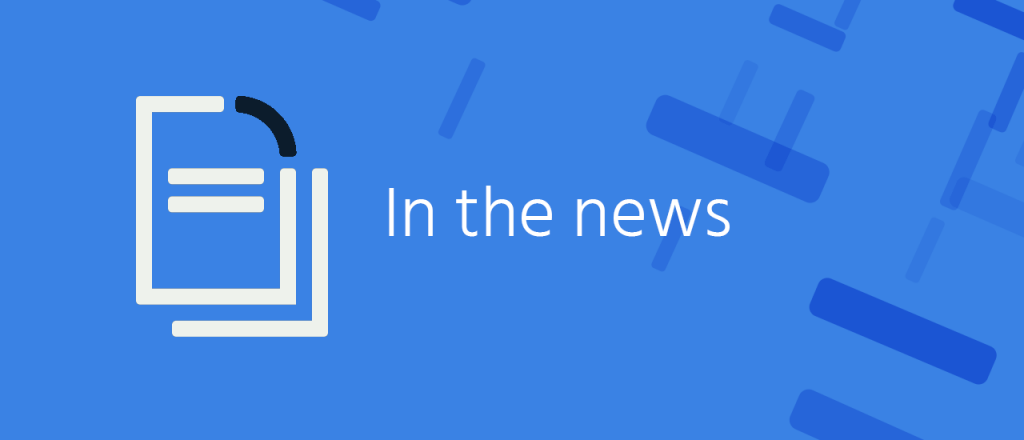
Traffic cops: The government of Cambodia has moved to establish a national Internet gateway with a single point of entry for traffic into the country, regulated by a government-appointed operator, The Diplomat reports. The Washington Post’s editorial board said the move “strikes at one of the nation’s last vestiges of democratic life.” The move also points to a larger threat to “the entire globe,” led by censorship efforts in China, the editorial board wrote. “China wishes to establish a freedom-crushing model of cyber-sovereignty by which every country sets its own rules for a Web that serves those in power, rather than the people, without any regard for civil liberties or due process of law.”
A deal on the news: Facebook had prohibited Australian users from sharing news on the social media site because of a proposal that would require it and other online services to pay news outlets, but the company has reached a deal with the government there that again allows users to post news articles, the New York Times reports. The deal allows more time for negotiations, but the Australian Senate passed the law anyway, CNet reports.
Help with the bills: The U.S. Federal Communications Continue reading
Know an Innovator Who’s Made Groundbreaking Contributions to the Internet? Nominate Them to the Internet Hall of Fame
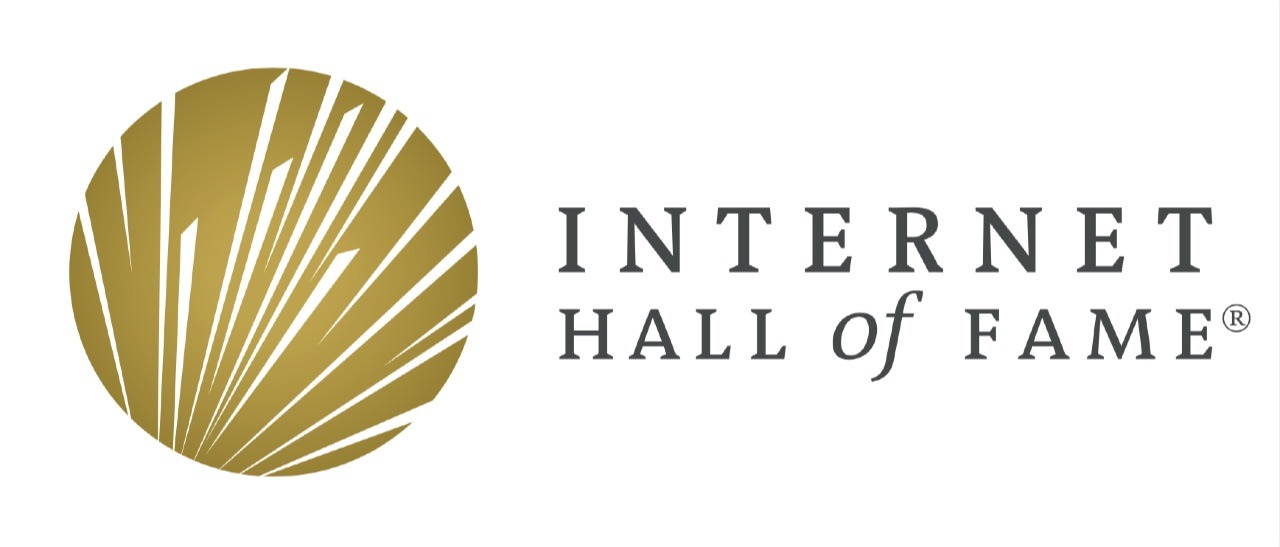
Adiel Akplogan expanded Internet access across Africa. Jean Armour Polly redefined the role of the librarian as a digital educator and Internet advocate. Suguru Yamaguchi led cybersecurity research and helped found organizations to make the Internet more secure.
All three have been recognized with many others by the Internet Hall of Fame for their groundbreaking contributions to the Internet. Their extraordinary work has made the Internet, its global availability and use, and its transformative nature possible.
Do you know of an exceptional individual who has done the same? Perhaps a pioneer who expanded the Internet. A trailblazer who made a major technical innovation to make the Internet faster or better. Or a passionate advocate who made the Internet more inclusive and accessible.
If you answered yes, nominate them to the Internet Hall of Fame!
Nominations for the 2021 class of inductees open today – the deadline is April 23, 2021. Individuals worldwide who have played an extraordinary role in the conceptualization, building, and development of the Internet globally will be considered for induction.
This global pandemic has shown us how critical the Internet is. It is our lifeline, where we communicate, create, connect, and collaborate – and we cannot imagine Continue reading
The Best and the Brightest Security and Privacy Experts Are Gathering Virtually at NDSS 2021

The 28th consecutive Network and Distributed System Security Symposium (NDSS 2021) kicks off today. NDSS is a premier academic research conference addressing a wide range of topics on network and system security. It’s an incubator for new, innovative ideas and research on the security and privacy of the Internet.
NDSS 2021, which takes place 21-25 February, will be one of the biggest NDSS symposia yet, featuring two keynotes, 90 peer-reviewed academic papers, six co-located workshops, and 19 posters focusing on vital and timely topics. All of this will happen virtually for the first time!
Here are some of the highlights.
Workshops
This year’s program officially started yesterday with three workshops on Sunday, 21 February. NDSS workshops are organized around a single topic and provide an opportunity for greater dialogue between researchers and practitioners in the area.
The Binary Analysis Research (BAR) Workshop returns for its fourth year at NDSS. Binary analysis refers to the process where humans and automated systems examine underlying code in software to discover, exploit, and defend against vulnerabilities. With the enormous and ever-increasing amount of software in the world today, formalized and automated methods of analysis are vital to improving security. This workshop will emphasize the Continue reading
The Week in Internet News: Facebook Blocks News from Australia
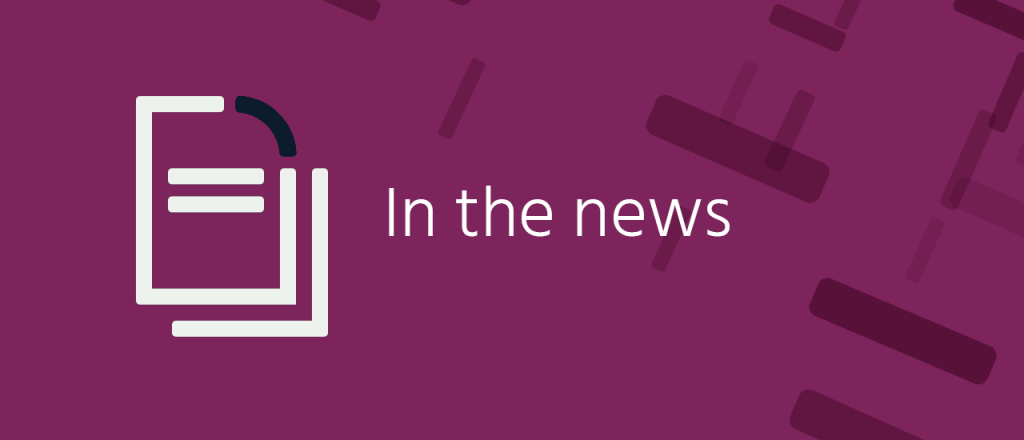
No news for you: Facebook has blocked Australians from viewing or sharing news on its site in response to a proposed law that would require social media sites and other online services to pay news publishers, the BBC reports. The “power play” may backfire, however, “given how concerned many governments have grown about the company’s unchecked influence over society, democracy and political discourse,” The Associated Press says.
SpaceX rejected: A village in France is not interested in becoming the site of a ground station for SpaceX’s satellite-based broadband service, Yahoo Finance says. Residents of Saint-Senier-de-Beuvron are concerned about the impact of the antennas on the health of residents, said Noemie Brault, deputy mayor in the village. Still, many supporters of the SpaceX Starlink project see major benefits, including expanded Internet access to low-income nations, writes Larry Press, an information systems professor at California State University. Press writes on CircleID.com that connections to India, for example, are likely to serve community organizations, clinics, schools, and businesses.
No pictures, please: Facial recognition startup Clearview AI is in trouble in Canada for collecting photos of the country’s residents without their permission, TechCrunch reports. Collecting the photos violated Canadian privacy regulations, the country’s Continue reading
2020: A Record Year for MANRS

Over the past year, COVID-19 underlined the importance of a secure and resilient Internet to ensure we stay connected online. For MANRS, this meant even more incentive to work with network operators, Internet exchange points (IXPs), and content delivery network (CDN) and cloud providers to ensure data went where it was supposed to go via secure paths.
It was, therefore, really encouraging to see a record number of participants joining MANRS last year: the number almost doubled from 317 participants at the beginning of the year to 588 participants as of 31 December 2020. MANRS participants now manage 651 autonomous systems from over 60 countries across all continents.

MANRS contributed to the decline in reported routing incidents from more than 5,000 in 2017 to below 4,000 in 2020, making the entire Internet more secure for everyone. While we cannot claim full credit, we can attribute the fewer routing incidents to the increasing number of network operators implementing best routing practices.
The year also saw us launching a new program for CDN and cloud providers in collaboration with eight founding participants: Akamai, Amazon Web Services, Azion, Cloudflare, Facebook, Google, Continue reading
Minor Administrative Updates to Internet Society Privacy Policy
Today we have made some minor updates to the Privacy Policy for this site and most of our other affiliated websites. The changes from the previous privacy policy were:
- Clarified in the introduction that this privacy policy applies to sites from both the Internet Society and also the Internet Society Foundation. Previously, it said only “Internet Society”.
- References to “Chief Administrative Officer” were changed to “Legal Department”.
- The contact email address was changed from “[email protected]” to “[email protected]”.
- Under “Can I Choose not to Receive Commercial Email Communications?”, the mention of “the OTA member preference center” was removed as that functionality was merged into the Internet Society membership portal.
The previous policy from April 2018 is available for review. We are publishing this notice as part of our commitment to transparency around any updates to our privacy policy. If you have any questions about this privacy policy, please contact [email protected].
The post Minor Administrative Updates to Internet Society Privacy Policy appeared first on Internet Society.
Internet Shutdowns: How to Undermine Trust in the Network of Networks

The Indian government’s recent Internet shutdown during farmer protests impacted over 50 million residents. It is a stark warning of the danger of tampering with the foundations that make the Internet work for everyone.
Internet shutdowns are a dangerous tactic increasingly used by the state to quell situations of unrest. In this instance, it occurred during protests in the capital, Delhi, where farmers are asking for a repeal of three state-proposed farm laws. But while the initial Internet shutdown was targeted in Delhi and lasted around 29 hours, it soon extended to districts in the neighboring state of Haryana from 26 January to 1 February to “prevent disturbance to peace and public order”.
The consequence of shutting down parts of the Internet to prevent citizen access is profound: it undermines the global Internet infrastructure, which is based on collaboration and trust, and has severe individual and economic consequences that can extend far beyond a nation’s borders.
The Internet is an incredibly successful and powerful tool, a fact that has become all too clear during the COVID-19 pandemic. It is a key technology for supporting education, economic activity, and even access to healthcare for those under stay-at-home orders. Continue reading
The Week in Internet News: No Internet, No Vaccine
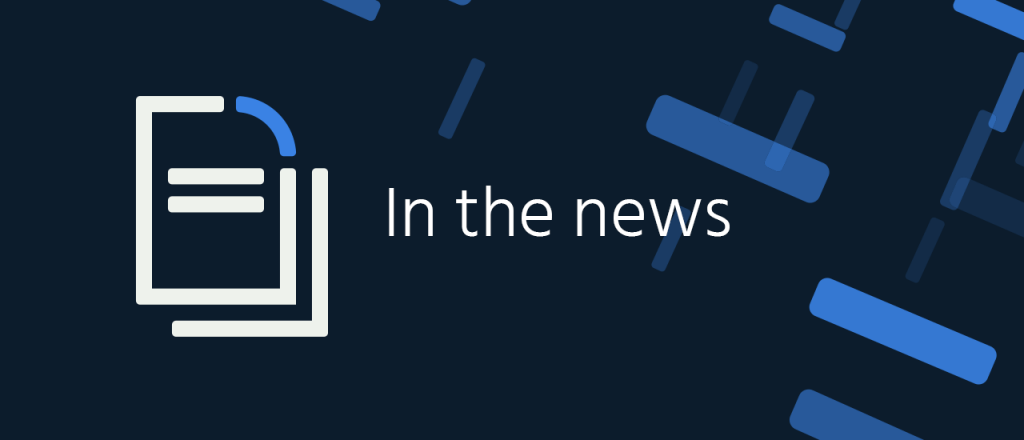
Unhealthy access: People lacking Internet access in the U.S., including some racial minorities, may be missing out on COVID-19 vaccines, The Conversation suggests. Signing up for the vaccine in the U.S. has largely happened online, meaning fewer seniors from underserved minority communities have been able to make appointments. In addition, people without Internet access have missed out on other health resources during the pandemic, as the use of telehealth services has skyrocketed during the pandemic.
Permission to be social: Mexican Senator Ricardo Monreal has proposed regulations for social media companies that would require them to “request authorization” from the country’s telecom regulator in order to continue operating in the country, Reuters reports. The Latin American Internet Association is protesting against the proposal, saying it would violate the United States-Mexico-Canada Agreement and create unjustified trade barriers.
No sale: U.S. President Joe Biden has paused the proposed sale of TikTok from Chinese owner ByteDance to Oracle and Walmart after former President Donald Trump raised security concerns about the app, NPR reports. Trump had threated to ban the video sharing app unless it was sold, but the Biden administration will undertake “a wide-ranging probe into how Chinese-owned technology companies could Continue reading
Announcing the Candidate Slates for the 2021 Board of Trustees Elections

As Chair of the Internet Society Nominations Committee, I am pleased to announce the slates of candidates for the 2021 Board of Trustees elections. The candidates for each slate are listed below in alphabetical order by last name.
Chapters Election (one seat available)
- Leiska Evanson
- Luis Martinez
- Rao Naveed Bin Rais
- Muhammad Shabbir
- Niels ten Oever
Organization Members Election (two seats available)
- Paul Ebersman
- Robert Pepper
- Wei Wang
- Heather West
Additional nominations for election to the Board of Trustees may be made by petition by the nominee, and filed with the Chair of the Nominations Committee using the online form available at the Petitions page: https://www.internetsociety.org/board-of-trustees/elections/2021/petitions/
The deadline for receipt of petition requests is 15:00 UTC on Friday, 26 February 2021. The deadline for petition signatures is Friday, 5 March 2021 at 15:00 UTC. The names of any successful petitioners will be placed on the ballot.
The final candidate slate will be announced on Monday, 8 March, and voting will open on Friday, 9 April.
Learn more about the candidates and the elections, including the petition process at: https://www.internetsociety.org/board-of-trustees/elections/
The Committee thanks all of the nominees who expressed interest and willingness to serve on the Internet Continue reading
Keeping Pakistan’s Internet Exchange Points Running

Internet Exchange Points (IXPs) are a vital element of Internet infrastructure. They can be found at physical and neutral locations where different IP networks meet to exchange local traffic via a switch. Implementing an IXP within a country helps bring faster, more affordable, and better performing Internet to people.
Frustrated by poor quality of service and high-cost connectivity, local Internet stakeholders started off the process of setting up an IXP in Pakistan. With the adoption of the 2015 telecoms policy, there was a new drive to foster interconnection and keep local traffic within the country.
Led by the Pakistan Telecom Authority (PTA), the telecom regulator, the government-initiated consultations on how to set up an IXP. To develop an informed opinion about IXPs, PTA reached out to the Internet Society, the Asia Pacific Network Information Center (APNIC), the local Internet community, and civil society.
The consultations led to the formation of an IXP board; comprised of all stakeholders. The new board decided to establish IXPs at Islamabad, Karachi, and Lahore. The IXP board first set up an IXP in Pakistan at a neutral venue, the Higher Education Commission of Pakistan (HEC), Islamabad in 2016. HEC was ideal because it provided a Continue reading
Don’t Make Parents Raise Kids in a World without Encryption

Natalie Campbell, Director of Public Advocacy at the Internet Society and a mother of two, warns against banning or weakening of encryption for the safety of children online.
Governments and law enforcement agencies are trying to ban or weaken a critical tool for keeping our children safe online. As parents, we must speak up for our kids.
Children who are fortunate enough to have Internet access are online more than ever, and many are increasingly doing learning online. But these spaces are attractive targets for criminals, and parents and schools often lack resources to guide kids on how to stay safe as they learn, socialize, and discover the world online.
Luckily, encryption has our back. Whether it’s sending a confidential message to a friend, videoconferencing with grandparents, or submitting an assignment to a teacher, platforms and services that use end-to-end encryption can help keep our children safe by keeping the line of communication private between the sender and receiver.
Despite this, some governments, law enforcement agencies, and even some child protection agencies are trying take away the strongest digital tool we have as parents to keep children safe online. The United Kingdom, Germany, the European Commission, and the Continue reading
Introducing the MANRS Ambassador Program 2021

The MANRS (Mutually Agreed Norms for Routing Security) Ambassador Program 2021 is now accepting applications. If you are an industry leader eager to improve the well-being of the Internet’s global routing system, apply now.
Ambassadors are representatives from MANRS participant organizations who show expertise and leadership in the routing security community. They are well-respected professionals committed to helping make the global routing infrastructure more robust and secure.
Ambassadors will work with MANRS Fellows, participants in an associated program that will invite applications next month. Together, they will train diverse communities on good routing practices, analyze routing incidents, research into ways to secure routing, and survey the global policy landscape.
You can read about the four Ambassadors in last year’s inaugural program, which proved highly popular. The Internet Society supports this program as part of its work to reduce common routing threats and establish norms for network operations.
You can apply to be a MANRS Ambassador in three different areas: training, research, and policy. Each Ambassador will receive a stipend of $1,500 a month. The program will start in mid-April and run for up to eight months. You can apply for more than one category but will only be selected for Continue reading